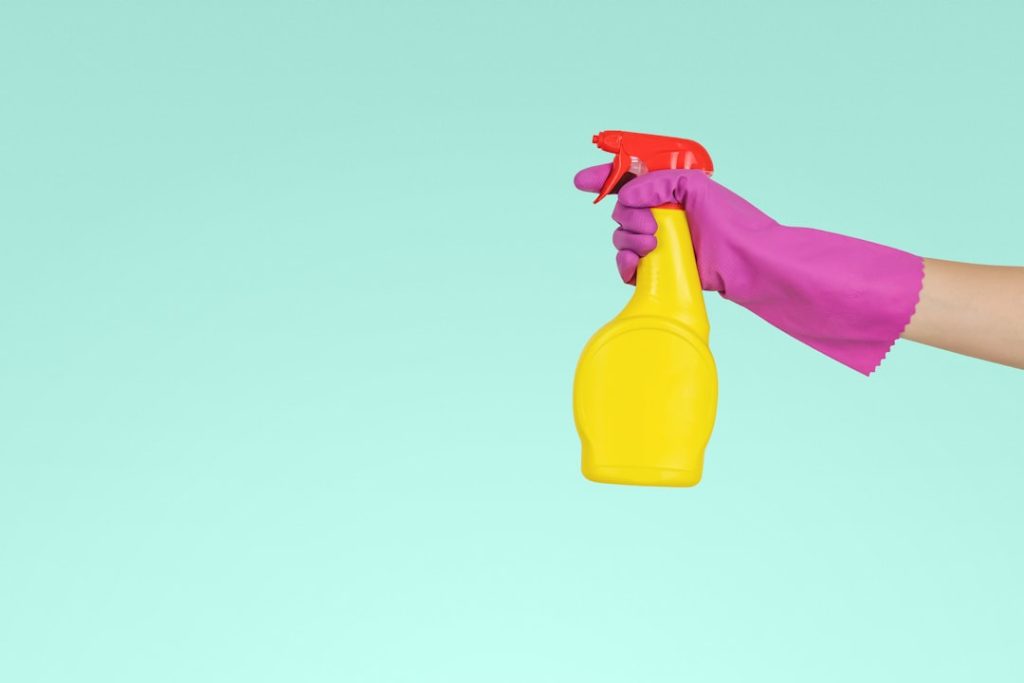Mites are microscopic parasites that can significantly impact the health of baby chickens. Various mite species, including the common red mite and northern fowl mite, affect poultry. These nocturnal pests hide in small spaces during daylight hours, making detection and elimination challenging.
Mites feed on chicken blood, potentially causing anemia and reduced egg production in adult birds. For baby chickens, mite infestations are particularly hazardous due to their small size and vulnerability. Mite infestations in baby chickens can lead to numerous health problems, such as skin irritation, feather loss, and stunted growth.
Severe cases may result in anemia or death. Mites can also transmit diseases like fowl pox and avian influenza, further compromising chick health. Chicken owners must remain vigilant for signs of mite infestations and take immediate action when detected.
Understanding the risks associated with mites allows owners to implement preventive measures, maintain a clean environment, and establish regular cleaning routines to safeguard their flock’s health.
Table of Contents
- 1 Creating a Clean and Healthy Environment for Baby Chickens
- 2 Implementing Regular Cleaning and Maintenance Practices
- 3 Using Natural Remedies to Repel Mites
- 4 Monitoring and Treating Infestations Promptly
- 5 Providing Adequate Nutrition and Hydration for Baby Chickens
- 6 Seeking Professional Help if Necessary
- 7 FAQs
- 7.1 What are mites and why are they a concern for baby chickens?
- 7.2 How can I prevent mites from infesting my baby chickens?
- 7.3 What are some signs that my baby chickens may have mites?
- 7.4 How can I treat mites if my baby chickens become infested?
- 7.5 Are there any natural remedies for keeping mites away from baby chickens?
Key Takeaways
- Mites pose a significant threat to baby chickens, causing irritation, stress, and potential health issues.
- A clean and healthy environment is crucial for preventing mite infestations in baby chickens.
- Regular cleaning and maintenance practices, such as changing bedding and removing debris, are essential for mite prevention.
- Natural remedies like diatomaceous earth and herbs can help repel mites from baby chickens’ living areas.
- It’s important to monitor baby chickens for signs of mites and treat infestations promptly to prevent further spread and discomfort.
- Providing proper nutrition and hydration is key to maintaining the overall health and resilience of baby chickens.
- Seeking professional help from a veterinarian or poultry expert may be necessary if mite infestations persist or worsen.
Creating a Clean and Healthy Environment for Baby Chickens
Proper Coop Management
Proper coop management is key to maintaining a clean environment for baby chickens. This includes regular cleaning of the coop, nesting boxes, and roosts, as well as removing any debris or clutter that could provide hiding places for mites.
Ventilation and Bedding
It is also important to provide adequate ventilation in the coop to help reduce moisture levels, as mites thrive in humid environments. Additionally, using clean bedding materials such as straw or wood shavings can help prevent mite infestations by reducing the presence of mite eggs and larvae.
Biosecurity Measures
In addition to maintaining a clean coop, it is important to practice good biosecurity measures to prevent the introduction of mites into the flock. This includes quarantining new birds before introducing them to the existing flock, as well as regularly inspecting birds for signs of mites or other pests. By creating a clean and healthy environment for baby chickens, owners can help reduce the risk of mite infestations and promote the overall health and well-being of their birds.
Implementing Regular Cleaning and Maintenance Practices

Regular cleaning and maintenance practices are essential for preventing mite infestations in baby chickens. This includes regularly cleaning the coop, nesting boxes, and roosts to remove any debris or clutter that could provide hiding places for mites. It is also important to regularly inspect the coop for signs of mites, such as red or black specks on surfaces or on the birds themselves.
In addition to cleaning the coop, it is important to regularly change bedding materials and remove any soiled or damp bedding that could attract mites. In addition to regular cleaning, it is important to practice good biosecurity measures to prevent the introduction of mites into the flock. This includes quarantining new birds before introducing them to the existing flock and regularly inspecting birds for signs of mites or other pests.
By implementing regular cleaning and maintenance practices, chicken owners can help reduce the risk of mite infestations and promote a clean and healthy environment for their baby chickens.
Using Natural Remedies to Repel Mites
In addition to regular cleaning and maintenance practices, there are several natural remedies that can be used to repel mites from baby chickens. Diatomaceous earth is a natural substance that can be sprinkled in the coop and nesting boxes to help control mite infestations. This powdery substance works by dehydrating mites and other pests, making it an effective natural remedy for controlling infestations.
Additionally, essential oils such as lavender, peppermint, and eucalyptus can be diluted with water and sprayed in the coop to help repel mites and other pests. Another natural remedy for repelling mites is garlic. Adding garlic to the chickens’ diet can help repel mites from their bodies, as the odor is unappealing to pests.
Additionally, herbs such as oregano and thyme can be added to the chickens’ diet to help boost their immune systems and make them less attractive to mites. By using natural remedies to repel mites, chicken owners can help control infestations without relying on chemical pesticides that could be harmful to their birds.
Monitoring and Treating Infestations Promptly
Despite best efforts in prevention, mite infestations can still occur in baby chickens. It is crucial for chicken owners to monitor their flocks regularly for signs of mites and take prompt action if an infestation is detected. Common signs of mite infestations include red or black specks on surfaces or on the birds themselves, as well as increased scratching or pecking behavior.
If an infestation is suspected, it is important to take immediate steps to treat the affected birds and coop. There are several treatment options available for controlling mite infestations in baby chickens. Dusting the birds with diatomaceous earth or using natural sprays containing essential oils can help control mite populations on the birds themselves.
Additionally, thoroughly cleaning and treating the coop with diatomaceous earth or other natural remedies can help eliminate mites from the environment. It is important to continue monitoring the flock after treatment to ensure that the infestation has been effectively controlled. By monitoring for signs of infestations and treating them promptly, chicken owners can help protect their baby chickens from the negative effects of mite infestations.
Providing Adequate Nutrition and Hydration for Baby Chickens

Nutrition for Healthy Growth and Development
A balanced diet that includes a high-quality chick starter feed is crucial for supporting healthy growth and development in young birds.
Hydration for Optimal Health
Additionally, providing access to clean water at all times is essential for preventing dehydration and promoting proper digestion in baby chickens.
Monitoring Health and Preventing Illness
In addition to providing a balanced diet and access to clean water, it is important to monitor the overall health of baby chickens regularly. This includes observing their behavior, appetite, and droppings for any signs of illness or distress. By providing adequate nutrition and hydration for baby chickens, owners can help support their immune systems and make them less susceptible to the negative effects of mite infestations.
Seeking Professional Help if Necessary
In some cases, mite infestations in baby chickens may be severe or difficult to control with natural remedies alone. If infestations persist despite best efforts in prevention and treatment, it may be necessary to seek professional help from a veterinarian or poultry specialist. These professionals can provide guidance on effective treatment options for controlling mite infestations in baby chickens and may recommend additional measures such as chemical pesticides or prescription medications.
Additionally, seeking professional help may be necessary if baby chickens show signs of illness or distress related to mite infestations. Veterinarians can provide expert care and treatment options for addressing any health issues that arise as a result of mite infestations. By seeking professional help when necessary, chicken owners can ensure that their baby chickens receive the best possible care and treatment for mite infestations.
In conclusion, understanding the threat of mites to baby chickens is crucial for promoting their health and well-being. By creating a clean and healthy environment, implementing regular cleaning and maintenance practices, using natural remedies to repel mites, monitoring and treating infestations promptly, providing adequate nutrition and hydration, and seeking professional help if necessary, chicken owners can help protect their baby chickens from the negative effects of mite infestations. With proactive measures in place, baby chickens can thrive in a safe and pest-free environment.
If you’re looking for more information on caring for young poultry, you may be interested in this article on how to care for goslings. Goslings require specific care and attention, much like baby chickens, so this article may provide valuable insights for poultry owners.
FAQs
What are mites and why are they a concern for baby chickens?
Mites are small parasites that can infest baby chickens, causing irritation, discomfort, and potential health issues. They can also spread quickly and become a significant problem for the entire flock if not addressed promptly.
How can I prevent mites from infesting my baby chickens?
To prevent mites from infesting baby chickens, it’s important to keep their living environment clean and dry. Regularly clean and disinfect the coop, provide clean bedding, and ensure good ventilation. Additionally, consider using natural deterrents such as diatomaceous earth or herbs like lavender and mint.
What are some signs that my baby chickens may have mites?
Signs that your baby chickens may have mites include excessive scratching, feather loss, irritated skin, and a decrease in overall health and vitality. It’s important to regularly inspect your chickens for any signs of mites and address any issues promptly.
How can I treat mites if my baby chickens become infested?
If your baby chickens become infested with mites, there are several treatment options available. These include dusting the chickens with poultry dust, using natural remedies such as neem oil or garlic, and ensuring thorough cleaning and disinfection of the coop and surrounding areas.
Are there any natural remedies for keeping mites away from baby chickens?
Yes, there are several natural remedies for keeping mites away from baby chickens. These include using diatomaceous earth, herbs such as lavender and mint, and essential oils like neem oil or garlic. Additionally, maintaining a clean and dry living environment for the chickens can help prevent mite infestations.
Meet Walter, the feathered-friend fanatic of Florida! Nestled in the sunshine state, Walter struts through life with his feathered companions, clucking his way to happiness. With a coop that’s fancier than a five-star hotel, he’s the Don Juan of the chicken world. When he’s not teaching his hens to do the cha-cha, you’ll find him in a heated debate with his prized rooster, Sir Clucks-a-Lot. Walter’s poultry passion is no yolk; he’s the sunny-side-up guy you never knew you needed in your flock of friends!







